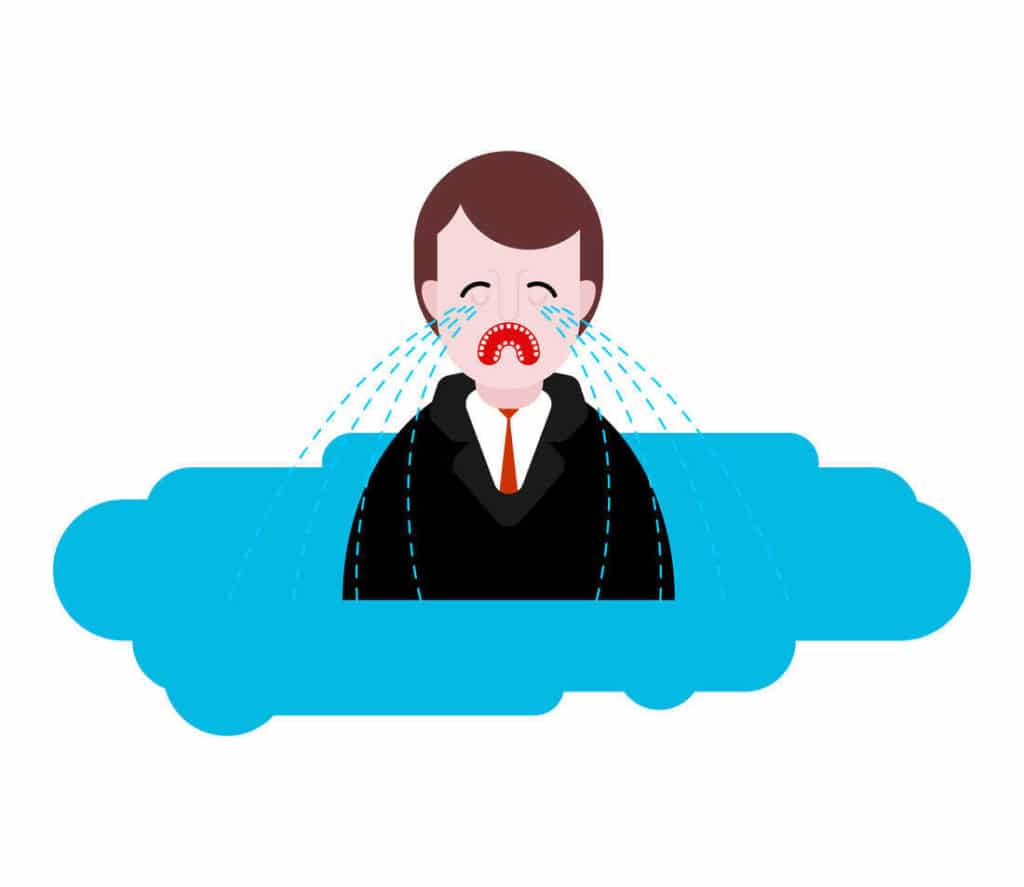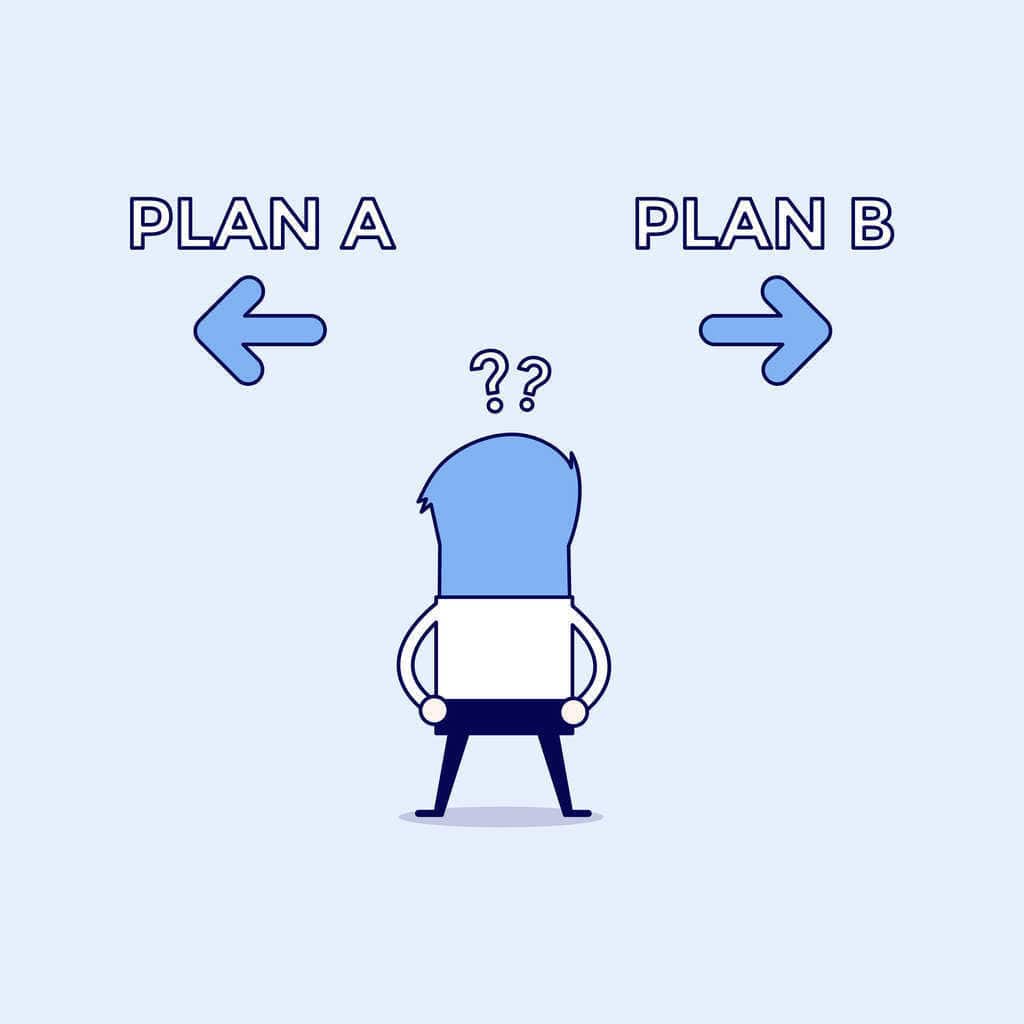The loss of a job is never easy, especially if you’re not aware of the right rebounding tips. It can be challenging to remember the big picture when you are struggling daily with bills and other financial responsibilities that may not have been an issue while you were employed. However, one of the most essential skills that workers in this day and age need to know is how to bounce back after finding themselves losing a job.
Throughout this entire pandemic, many people have found themselves facing layoffs or transitioning into different work roles. In fact, more than 4 million have been permanent laid off since May of 2021. This is due to the constant restructuring, resizing, and closing down of businesses during this time. As a result, it can be challenging to get back into the workplace. Thankfully, there are many rebounding tips you can follow to jumpstart your career.
In this post, we will share rebounding tips for those who find themselves in this situation and how you can make the most out of a bad situation.

What Happens When You Lose Your Job?
Losing your job can happen for many reasons, such as frictional unemployment, structural unemployment, or cyclical unemployment. Still, it is going to be up to you how you choose to handle the situation.
More than just your paycheck changes when you lose your job. Your daily routines, co-workers, and status within your job disappears, which can make you feel like you don’t have direction or purpose in your life.
You might find yourself very upset about the situation or want to vent about the problem with others. However, it’s important to remember to stay in control of your actions and emotions because if you don’t, it can make your situation even more complicated or burn bridges. Instead, it’s time to move forward and find ways to create a new direction for your life and future. Here are a few rebounding tips to help you get back on your feet!

Give Yourself Time To Process The Layoff
One of the most essential rebounding tips is to give yourself a moment to process what just occurred. This is an emotional event, and you need to take some time for yourself. It can be tempting to jump right back into the workforce as soon as possible in order to avoid any financial hardships that may occur from not having a paycheck coming in.
However, rebounding doesn’t mean jumping back into work at all costs. It means taking your time to heal emotionally before going through the process of getting another job or starting a self-employment venture.
Understand Your Financial Position
Another important rebounding tip is to understand your financial position. Depending on the reason for being let go, you may have some severance pay and/or unemployment benefits coming in. You’ll want to understand exactly what that looks like. What does it include, and how long those resources can last you as you search for a new job?
You’ll likely feel like your finances are tighter without a regular income, so make sure you accurately calculate how long you can go before bills and everyday needs will become an issue. This will help you ensure that you’re making the best decisions for your household.
To begin, write down all of the monthly obligations that you have and how much money it would take to cover them before moving forward. Include payments such as rent, utilities, groceries, gas, car payments, or insurance- anything your family needs on a monthly basis. Then, consider all other costs you make that aren’t necessary to your wellbeing, such as your Netflix account, cable, gym membership, and so on. These are all things that can be cut back in order to make any financial hurdles easier to handle during this time of change.

Create Your Job Hunting Plan
It’s essential to have a job-hunting plan in place before you jump back into the workforce.
This may be as simple as identifying what you’re looking for, or it can also include creating lists of contacts and researching different industries- all depending on your personal situation. Regardless, you’ll want to consider what your options might be.
If you have a lot of experience in an industry or have a specific skill set, you may find a job quickly. If not, you can decide whether or not it’s worth taking the time to go back for more education in order to gain additional skills that will make finding employment easier.
Network With People You Know
Did you know that 85% of jobs are filled through networking? The best rebounding tip is also one of the most basic- network with other people who have been through similar experiences and see what they recommend! Networking with those around you is always essential, especially since there are many others out there just like yourself who want to help one another get back on their feet after losing a job.
You should also consider contacting your old colleagues at previous places where you’ve worked and ask them about any opportunities available within the company. Reach out on social media and see if there are any opportunities that you might be qualified for.
Update Your Resume
Once you’ve determined what it is that you want to do, the next step should be updating your resume.
This may seem like a no-brainer, but many times people don’t think about these simple rebounding tips until they have lost their job and are looking for employment once again.
Make sure everything is up-to-date, including contact information (which includes an email address), any social media links where prospective employers can find more information about who you are as well as previous work experiences. Once updated, make copies of these resumes on paper or electronically so that all interested parties will have this information when reviewing your application materials.
Make sure to include information on your resume relevant to the job you want to get, not the jobs you’ve already worked. For example, if you’re going to be in engineering, your bartending experience won’t be relevant to your resume.
Make Job Hunting A Priority
While it’s essential to take time to process losing a job, you don’t want to delay looking for a new job and create a wider gap between your employment periods. Set yourself up with a schedule to start your new job hunt.
This can include dedicating an hour every day to look for jobs or on the weekends. In addition, be sure to research different industries and update your resume so that you’re prepared when it comes time to interview with potential employers.
Stay Busy
Losing a job can be an emotional time for many people, but it’s important not to let that consume you. One of our best rebounding tips is to stay busy. Especially, since it could take a few weeks or even months to score a new job! In fact, it will take an average of 28 days from submitting your application to receiving an offer, according to Jobites analysis.
Explore your interests during this period of unemployment, so you don’t feel as though life has come to a standstill. It helps tremendously if you have other things going on in your life. Hobbies or volunteering opportunities are great ways to fill the void between jobs while also keeping yourself fulfilled. You may even find that your activities will help shape your new career path moving forward into whatever is next!
Don’t Forget To Take Care Of Yourself
Rebounding doesn’t just mean finding new employment- it also means taking care of yourself when needed. It’s essential not only in terms of mental health but also physical due to stress that may occur.
Doing things like exercising (and eating well) will help keep both your mind and body healthy. This will allow you to recover from this challenging event more quickly than had you neglected yourself during these trying times. Taking some time to relax and enjoy hobbies you may have put on the back-burner will also help!
Stay Optimistic
No matter what, it’s essential to stay optimistic during these times. Keep in mind that while you may have lost your job, this is a new opportunity for something else.
Your new job might not be exactly what you wanted or even the same industry. Take this time to get organized as well as find out what you want out of your future career.
Reach Out To A Recruiter
If you’re having a hard time finding a job, you might consider reaching out to a recruiter.
Recruiters will put your resume on file for when positions open up at their client companies. This is often the best way to eventually find employment- not just any job, but one that’s worth it!
You can also consider reaching out to recruiters about jobs outside the area or even the state. Don’t limit yourself due to personal considerations. The broader search may lead to better results than local results where there are more applicants per position.
Participate In “Mock” Interviews
If you have a hard time interviewing in person, try practicing via “mock” interviews to help avoid mistakes during the real deal.
Many job fairs and companies will offer this type of interview. This allows the applicant to practice their skills with real feedback from an employer who does this all the time.
Researching other industries may provide opportunities outside your current field better suited to your interests or skill set. You’ll never know unless you’re willing to go out there and explore different avenues. Don’t limit yourself because past experiences didn’t work out in favor of what was desired; keep looking for new ways to make things happen by being open-minded about these possibilities!
Follow Up After Interviews
Don’t forget to follow up after any interviews you have- this includes the company conducting them.
You never know if they’ll reach out again in a few days and want to schedule more rounds of interviews. They may simply forget that your resume was submitted for consideration altogether! So be sure to remind them so you’re not left wondering what happened with an interview that didn’t lead anywhere.
Plus, you’ll stand out from other applicants by taking the time to follow up and show you’re into their company.
Give Yourself A Break
While it might not seem like rebounding tips, It’s important to give yourself a break while going through this tough time. The last thing you need is more stress!
Figure out your current skills. Brainstorm some ideas about things you enjoy doing or want to do more of. Take the time to research opportunities in other industries for anything that might be interesting. The possibilities can go on and on, but with so much uncertainty present when it comes to bouncing back from job loss, taking control over these decisions will help immensely!
Finding A Way Forward After A Job Loss
If you have been laid off from your job or are worried about the possibility of being laid off, it is essential to take action immediately to find your next fantastic gig with our rebounding tips. The first step in recovering after a layoff is accepting that this situation has happened and process your emotions. You can also start looking for work as soon as possible. Many organizations out there offer assistance with resume writing, interview coaching, networking opportunities, and more if you need help getting back on your feet.
If you’re ready to find your next dream job, submit your resume today or check out our open job postings.

